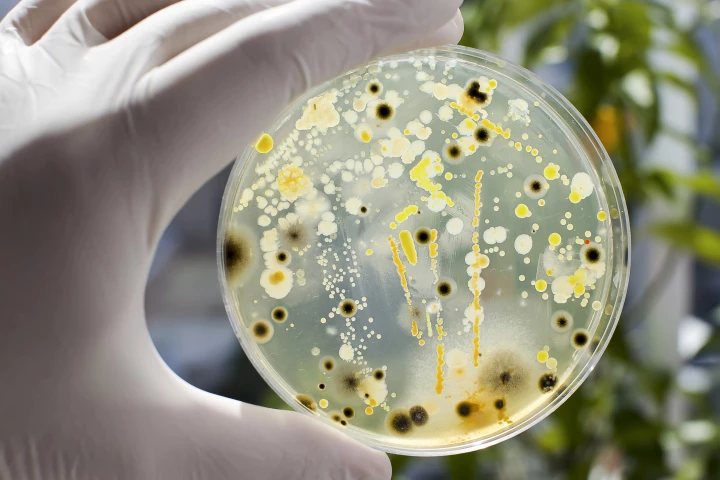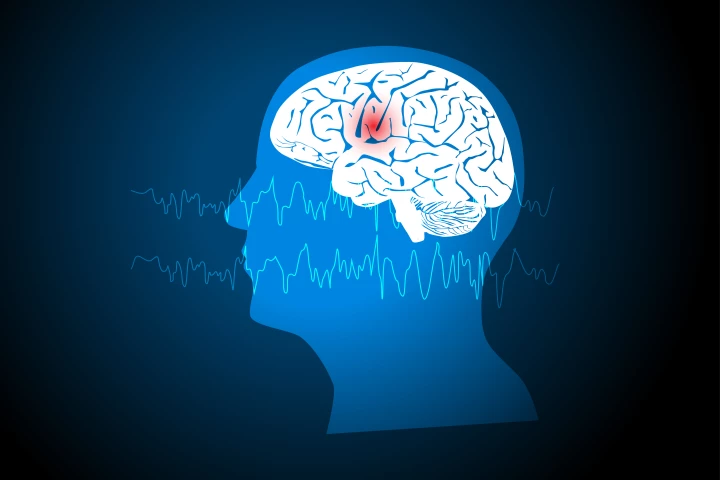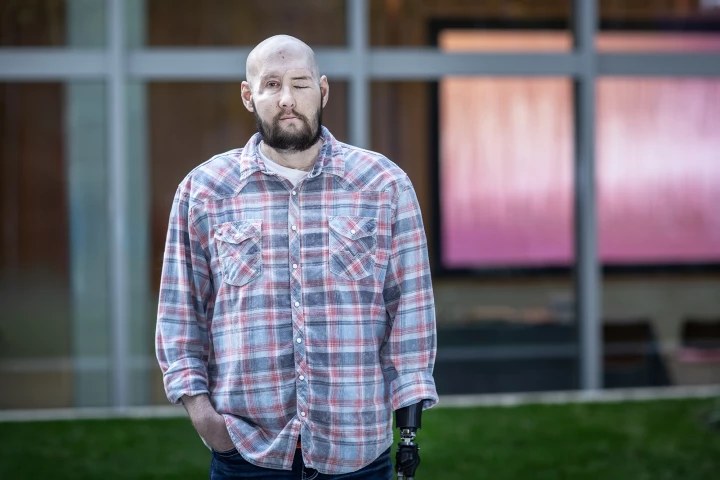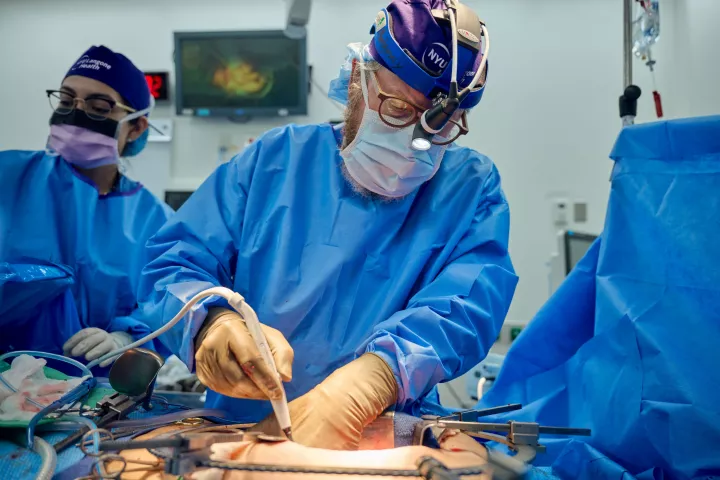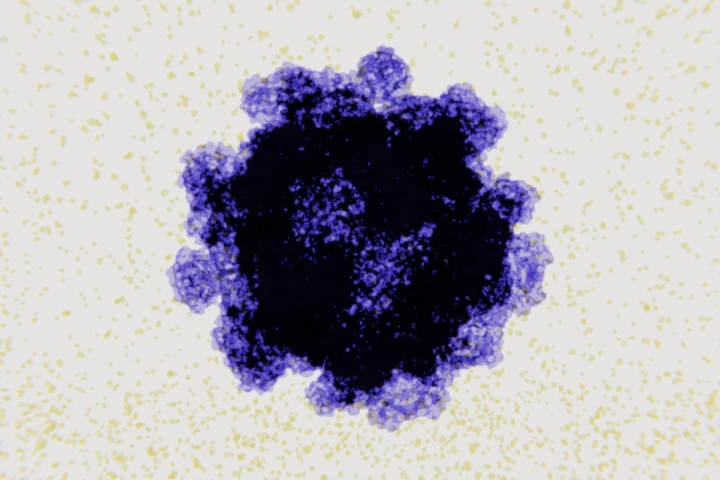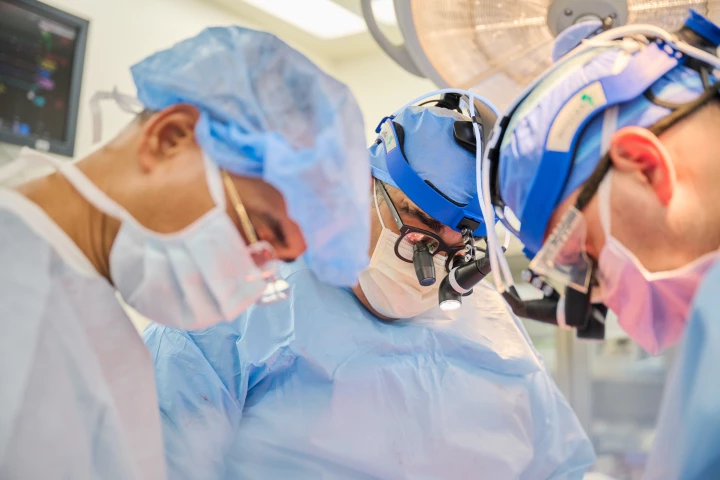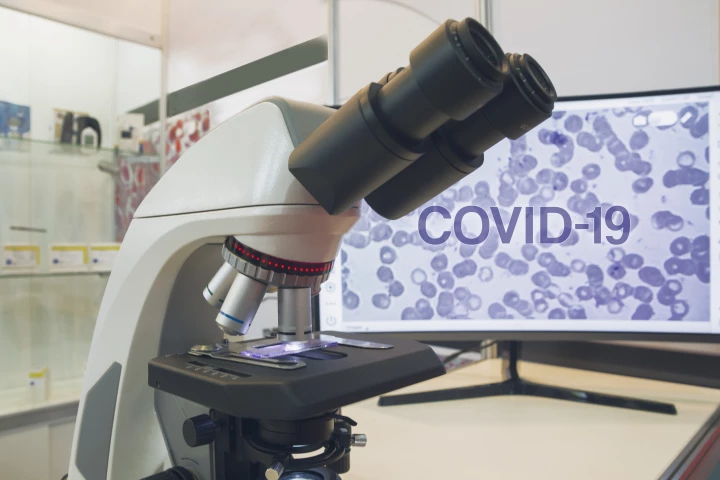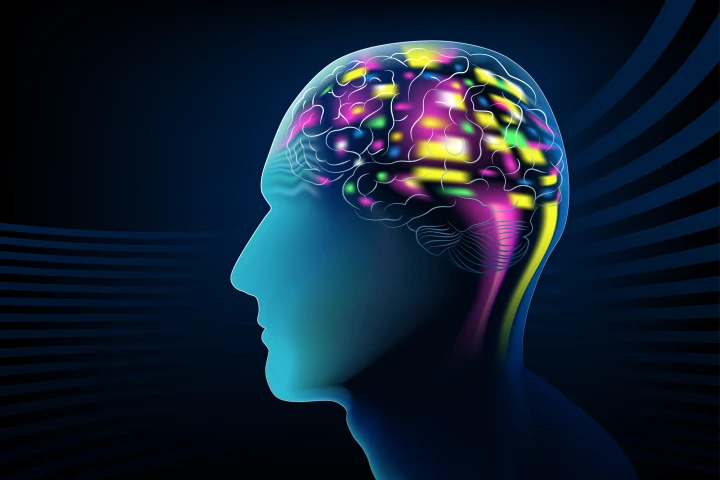NYU Langone Health
Discoveries out of NYU Langone Health
-
For the first time, scientists have identified 27 bacteria and fungi in our mouth that contribute to pancreatic cancer. Collectively, carrying all of these “bad” microbes increases cancer risk by 250% – 3.5 times higher than in the general population.
-
A new drug candidate could become a first-in-class medication, after impressive results in a mid-stage clinical trial for drug-resistant epilepsy. It now moves to Phase 3 trials, raising hope for people who suffer seizures despite being on medication.
-
A huge multidisciplinary team at NYU Langone Health has successfully undertaken the world’s first whole-eye and partial-face transplant. The landmark surgery opens new possibilities for future advancements in vision therapies.
-
In another encouraging step toward relieving transplant organ shortages, surgeons at NYU Langone Health have kept a genetically engineered pig kidney alive and fully functioning inside a brain-dead patient for over a month for the first time.
-
New research has found evidence a common viral infection can trigger inflammatory bowel disease in genetically susceptible people. Across a series of mouse experiments the researchers demonstrated how a norovirus infection can bring on Crohn’s disease.
-
A study has reported results from the first ever placebo-controlled trial testing psilocybin-assisted psychotherapy for alcohol use disorder, but the findings inadvertently raise major questions about the veracity of clinical trials for psychedelic drugs.
-
Researchers have found strong evidence exposure to a common group of household chemicals can be associated with 13 different health conditions. The related economic costs have been estimated at between US$5 billion and $60 billion annually in the US.
-
Researchers have announced success from a pair of experimental pig-to-human heart transplant procedures completed on recently deceased human subjects who were kept on mechanical ventilation for three days while the organs were monitored in their bodies.
-
Researchers are calling for urgent action limiting the use of chemicals called phthalates in the production of plastics. A new study estimates up to 100,000 premature deaths in the United States every year could be attributed to phthalate exposure.
-
The US National Institutes of Health is investing $470 million dollars into research on long COVID. The massive nationwide study into this often-debilitating condition will include tens of thousands of patients and span more than 30 research institutions.
-
Researchers have developed a brain implant designed to detect pain sensations in real-time and deliver bursts of pain-relieving stimulation. The device is still experimental but a proof of concept study shows it working effectively in rodent models.
-
A new study has validated the efficacy of a novel AI algorithm designed to deliver accurate MRI results using a quarter of the data of current systems. This innovation promises to speed up MRI scans without upgrades to pre-existing imaging hardware.
Load More
